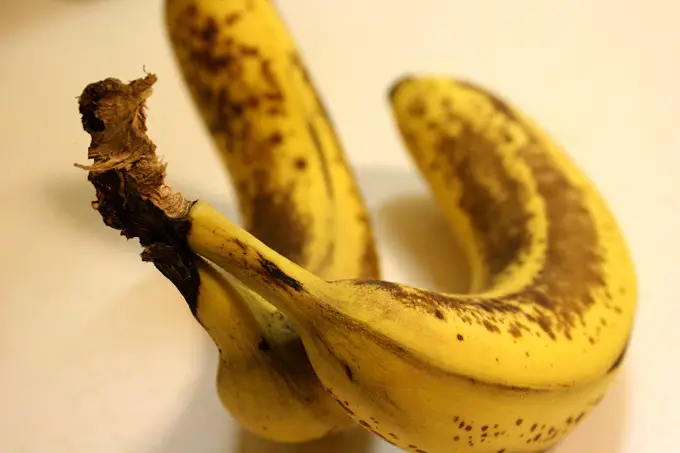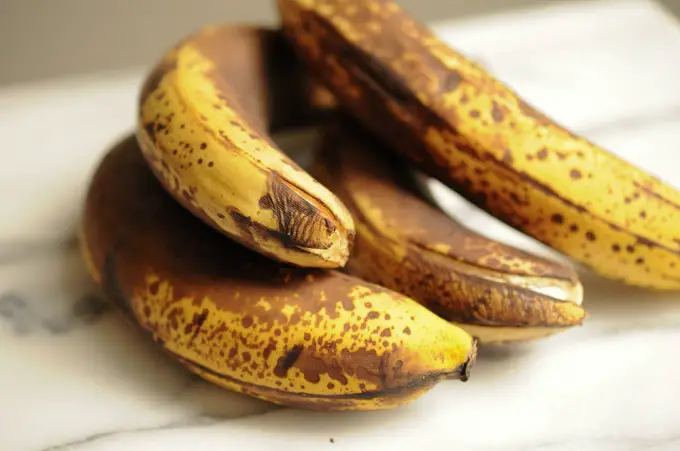If you are someone who loves bananas, then you should pay attention the next time you decide to buy some. They are so delicious that it’s hard to resist them, but there is something you need to keep in mind before buying these tropical fruits. Ripe bananas produce a substance called Tumor Necrosis Factor, which has the ability to fight abnormal cells.
Bananas contain Tumor Necrosis Factor
As bananas ripen, brown spots begin to appear on their skin. The more dark spots it has, the better it is for your immune system. This is why the Japanese love bananas so much. According to Japanese scientific research, ripe bananas contain TNF (Tumor Necrosis Factor) which has anti-cancer properties. This substance, according to the study, helps improve your immune system. The study concluded that consuming ripe bananas can prevent certain illnesses related to lifestyle and cancer.
The level of anti-cancer effect is related to the ripeness of the banana; that is, the more ripe the banana, the more cancer fighting power it has.
The riper the banana, the more nutrients it has
It is a fact that the nutrient content of fruits changes slightly as they ripen. As bananas ripen and turn yellow, their level of antioxidants increases. In fully ripe bananas with brown spots on their peel, the starch content is converted into simple sugars, which are easier to digest.
In an experiment done by Japanese scientists studying the diverse health benefits of different ripened fruits, like bananas, grapes, apples, watermelon, pineapple, pears and persimmon, when compared the banana had the best results. They increased the number of white blood cells and improved the immune system. The recommendation is to eat 1-2 ripe bananas a day to increase immunity against diseases such as the flu and common cold.
Ripe bananas are 8 times more effective at improving white blood cell count
It is believed that bananas that have reached the stage of having many brown spots may have a considerable about of TNF-alpha, and be 8 times more effective at improving white blood cell count compared to green bananas or yellow bananas without spots.
Tumor Necrosis Factor (TNF-α) is a cytokine, a substance secreted by certain immune system cells which has an effect on other cells. In practice, this is useful in the fight against abnormal tumor cells in the body. Research done on ripe bananas has shown that levels of TNF-α increase substantially just before the peel turns completely brown.
What happens in your body when you eat ripe bananas

Ripened bananas contain anti-cancer agents
The research concluded that the activity in bananas is comparable to that of lentinan, a chemical immunostimulant that is administered intravenously as an anti-cancer agent. And so, the banana can act as an anti-cancer agent because of its stimulation of the production of white blood cells and prevention of cellular mutations.
Eating ripe bananas is good for digestive health
Bananas benefit the digestive tract in several ways. One medium banana contains 3 grams of fiber, which helps facilitate circulations of nutrients through the digestive system. Ripe bananas also help to solidify feces and provide certain electrolytes which are often lost if diarrhea occurs.
A study from 1997 published in the journal “Practical Clinical Nutrition” found that ripe bananas reduce diarrhea in patients in critical condition with feeding tubes, a very common problem in this population and for whom anti-diarrheal medicines often don’t work. Bananas are also a source of fructo-oligosaccharides, a prebiotic compound that promotes the growth of beneficial bacteria that live in the digestive tract.
Cardiovascular health from eating ripe bananas
The high potassium content in bananas can benefit heart health when included as part of a diet high in potassium and low in sodium. A 2011 analysis of 11 different studies published in the “Journal of the American College of Cardiology” found that the more potassium people consumed, the lower their risk of stroke and heart disease. The soluble fiber content of bananas also may help protect against future cardiovascular problems.
Ripe bananas benefit bone health
Bones can also benefit from the potassium in ripe bananas. Potassium helps to regulate the pH and calcium levels in the blood and prevents calcium from leaching from the bones. According to the Linus Pauling Institute, a diet rich in potassium can help prevent osteoporosis.
The fructo-oligosaccharides in ripe bananas also may help increase calcium absorption, which at the same time improves bone density.
Note: Once bananas have ripened completely, keep them in the refrigerator to minimize the loss of vitamins. Fresh bananas with brown spots are ripe enough to eat right away. Make sure you avoid bananas that are over-ripe with completely brown peels or whose peels have split open.

